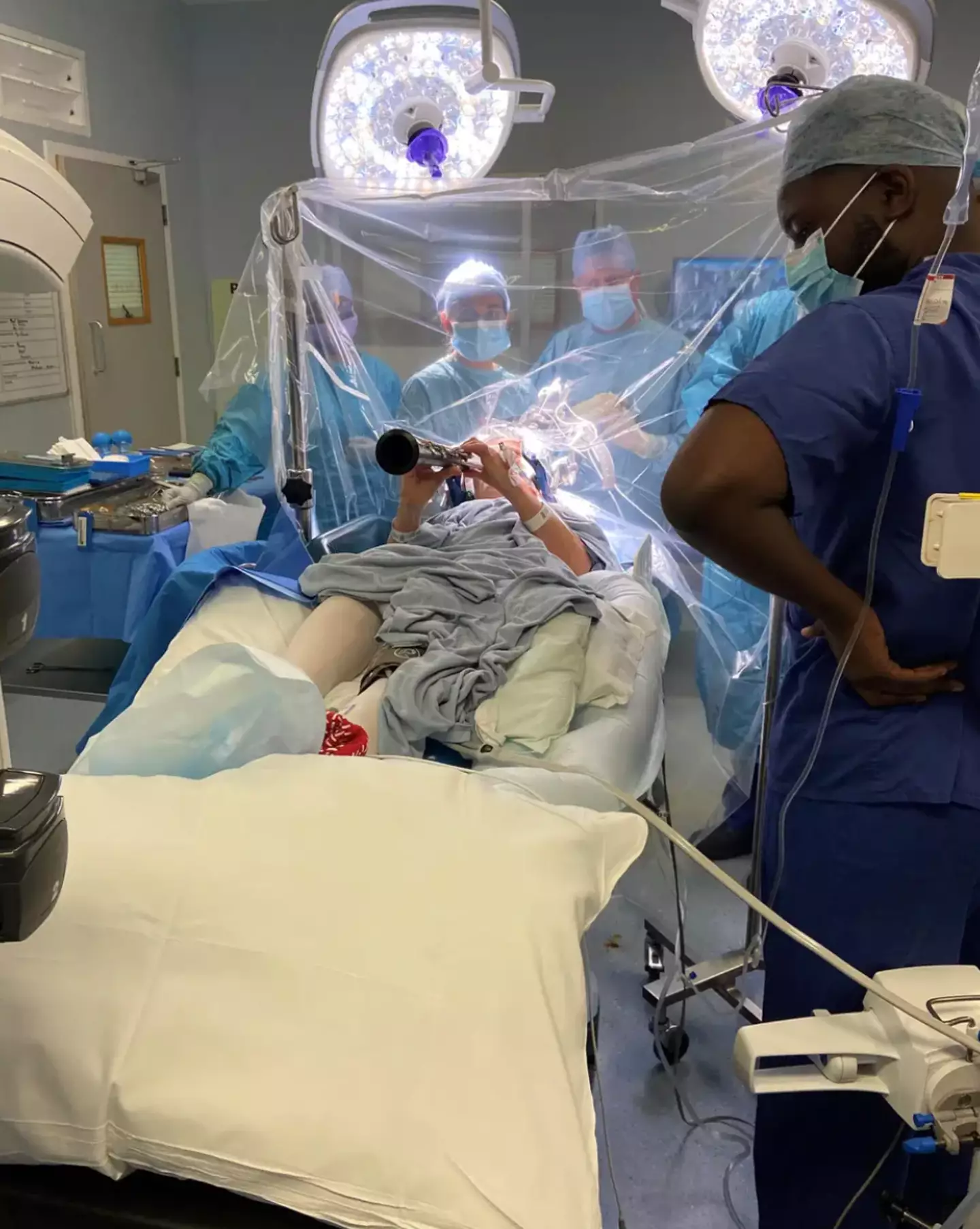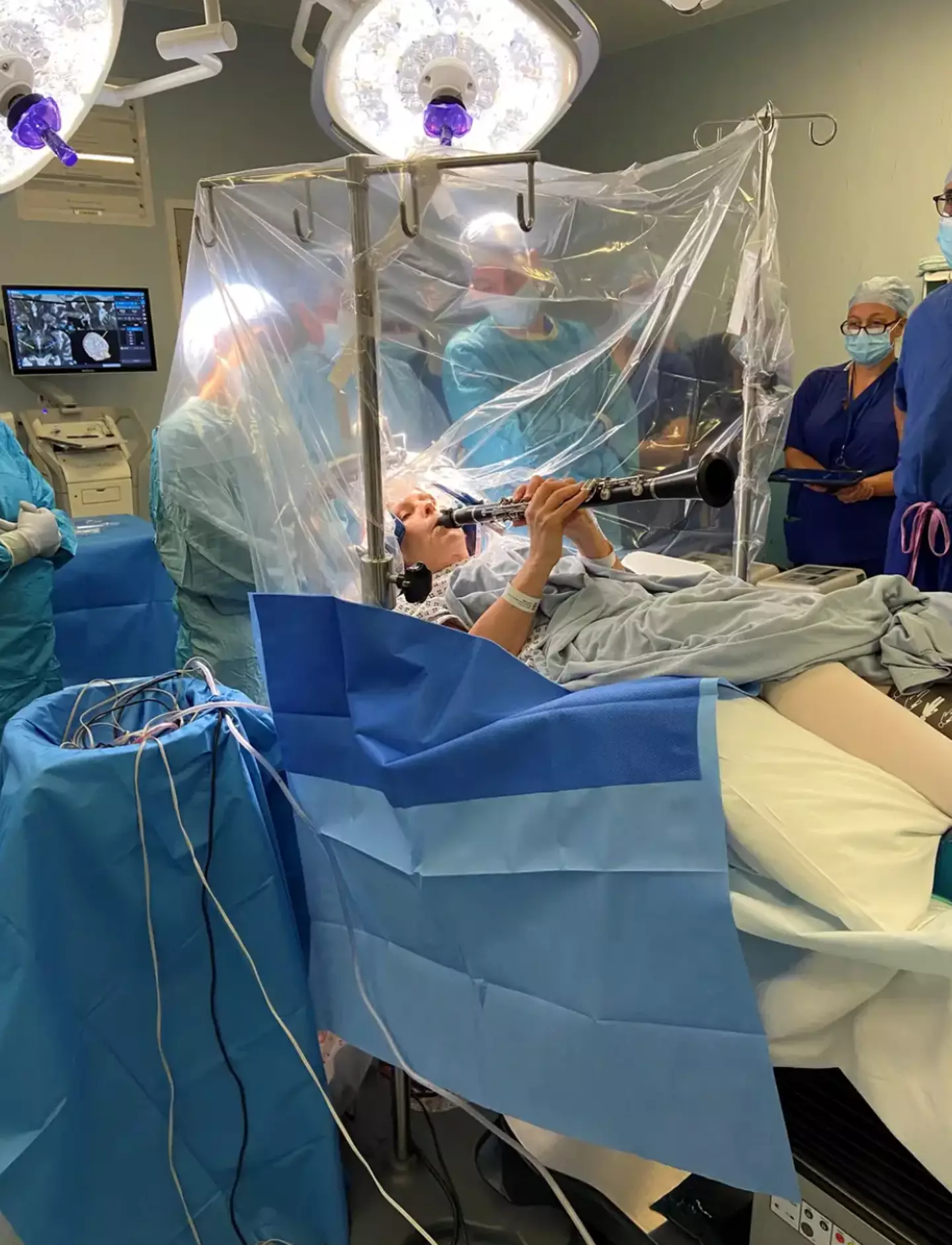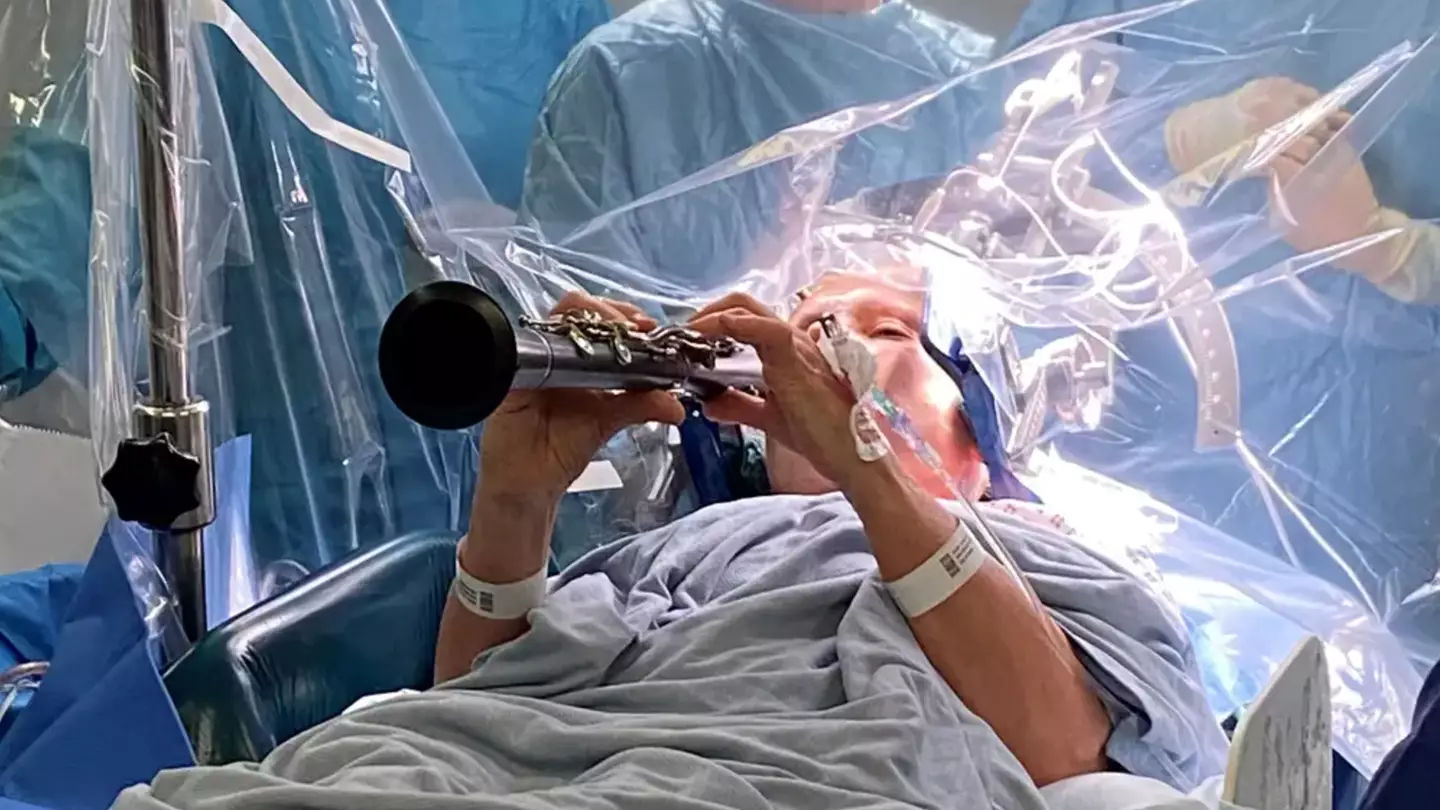A woman with Parkinson’s disease has set a precedent by playing a musical instrument during a four-hour surgical procedure.
Denise Bacon, aged 65, was diagnosed with this challenging condition more than a decade ago. Consequently, her ability to walk, swim, dance, and play the clarinet has been significantly impacted.
Denise, from East Sussex in England, expressed her happiness about the successful outcome of the surgery.
“I remember my right hand being able to move with much more ease once the stimulation was applied, and this in turn improved my ability to play the clarinet, which I was delighted with,” she recounted.
Reflecting on her progress post-operation, Denise noted, “I’m already experiencing improvements in my ability to walk, and I’m keen to get back in the swimming pool, and on the dance floor to see if my abilities have improved there.”

The surgery was performed at King’s College Hospital by Keyoumars Ashkan, a neurosurgery professor.
Denise’s scalp and skull were anesthetized to allow for deep brain stimulation (DBS). DBS involves the surgical implantation of electrodes in the brain, suitable for certain patients with disorders like Parkinson’s, with which Denise has been living since 2014.
The DBS procedure resulted in immediate improvements during the operation. Remarkably, Denise experienced instant enhancement in her finger movements, enabling her to play the clarinet without difficulty.
Prof Ashkan explained, “Holes half the size of a five pence piece were made in Denise’s skull after a frame with precise co-ordinates was placed on Denise’s head, acting as a sat nav to guide us to the correct positions within the brain to implant the electrode.
“Once the electrodes were in place on the left side of Denise’s brain, the current was switched on and an immediate improvement was noted in hand movements on her right side.
“The same happened on her left side when we implanted electrodes on the right side of her brain.”

He further mentioned, “As a keen clarinettist, it was suggested Denise bring her clarinet into the operating theatre to see whether the procedure would improve her ability to play, which was one of Denise’s main goals for the surgery.
“We were delighted to see an instant improvement in her hand movements, and therefore her ability to play, once stimulation was delivered to the brain.”
Prof Ashkan described DBS as ‘one of the most effective, evidence-based and long-lasting therapies to control the motor symptoms of Parkinson’s disease, improving tremor, stiffness and slowness of movement’.
“Modern advances in DBS technology are now allowing us to personalise the therapy to the needs of our patients, with a positive impact on their quality of life,” he concluded.

